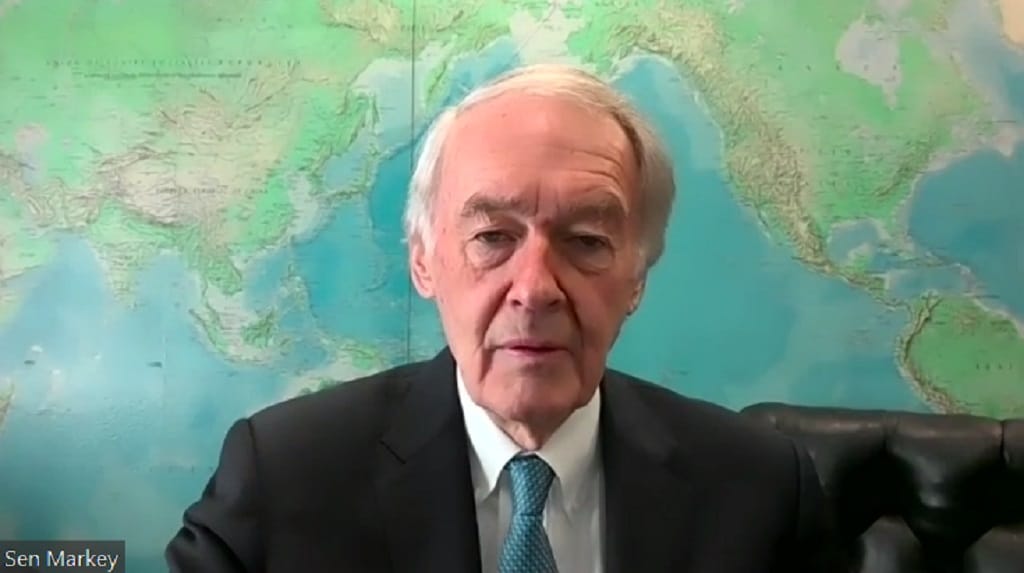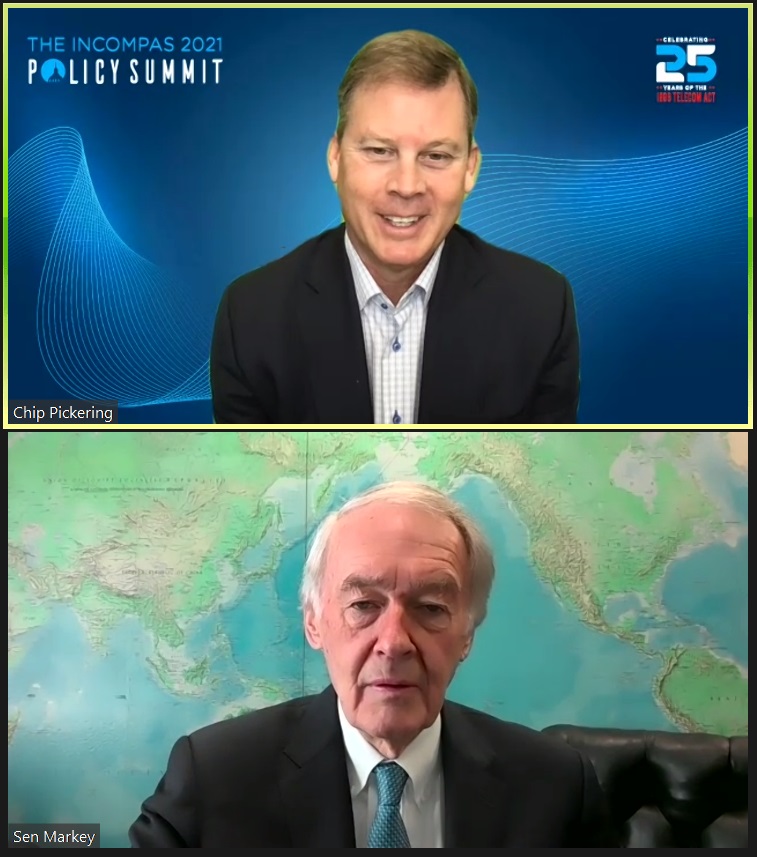Telecom Act Boosters at INCOMPAS Summit Urge Broadband Boost and Net Neutrality Revival
February 8, 2021 – Washington insiders marked the 25th anniversary of the signing of the Telecommunications Act on Monday by discussing how broadband deployment must be a top priority for new government and regulatory administrations. The new-look White House and Federal Communications Commission ca
Derek Shumway

February 8, 2021 – Washington insiders marked the 25th anniversary of the signing of the Telecommunications Act on Monday by discussing how broadband deployment must be a top priority for new government and regulatory administrations.
The new-look White House and Federal Communications Commission can foist an era of great business growth if sustained financing of broadband, including the building of fiber infrastructure, is considered a top goal, said Kurt Van Wagenen, CEO of FirstLight Fiber and chair of the board at telecom Incompas,
Speaking at the Incompas 2021 Policy Summit on Monday, Van Wagenen stated that benefits realized by market-opening policies will be huge. Along with Incompas CEO Chip Pickering, they pledged Incompas’ intent to fulfill the pledge it signed to the FCC to “keep America connected.”

FirstLight Fiber has approximately 25,000 miles of belt fiber networks across six states it operates for more than 15,000 customers.
Covid-19 has proved the need for a more virtual environment , which provides the administrations with ample ammunition to push the agenda, the executives said.
Telecom Act created ‘extreme wealth’
Democratic Sen. Edward Markey of Massachusetts, who gave the opening keynote at the summit, added that 12 million children in the United States don’t have access to internet-connected or home devices – a gap that is leaving harming their education This problem has been exacerbated by the pandemic, he said.
Markey noted that since its inception in 1996, the Telecommunications Act “unleashed over 1.7 trillion dollars of private sector investment while creating extreme wealth in such a brief period of time.”
Telecom subsidies in COVID-19 stimulus measure
A call to increase and unlock E-Rate subsidies was made by Senator Markey. Children represent 20 percent of our population, but 100 percent of our future, he said.
He recently led more than 30 other Senate Democrats in to unlock E-Rate subsidies – a program providing telecom discounts to schools and libraries – for online learning, and said a portion of these funds should come from the next COVID-19 stimulus relief package.
Net neutrality for social justice
Net neutrality is also a civil rights movement, Markey argued, suggesting it allows for the freeflow of views on the Internet that have been the building blocks for social justice movements like Black Lives Matter.
In 2015, the Obama-era rules that forbade telecoms from influencing the content over networks, including slowing or blocking certain traffic, was eliminated under former FCC Chairman Ajit Pai’s administration in December 2017.
Eliminating net neutrality could hurt small business’ abilities to compete against larger, established companies, the senator said. Markey is in favor of net neutrality so that big tech companies cannot take advantage of small businesses.
He added the revocation of net neutrality would degrade progress the country has made in trying to root out systemic racism. Power on the Internet, after all, is concentrated in the hands of a few, he said and biased algorithms that often feature some views above others and could lead to discrimination must be addressed, he noted.
Editor’s note: Because of an editing error, this story incorrectly stated that the 25th anniversary of the signing of the Telecom Act was Tuesday. The Telecom Act was actually signed by President Bill Clinton on February 8, 1996, making Monday in fact the anniversary date. The story has been corrected.









Member discussion